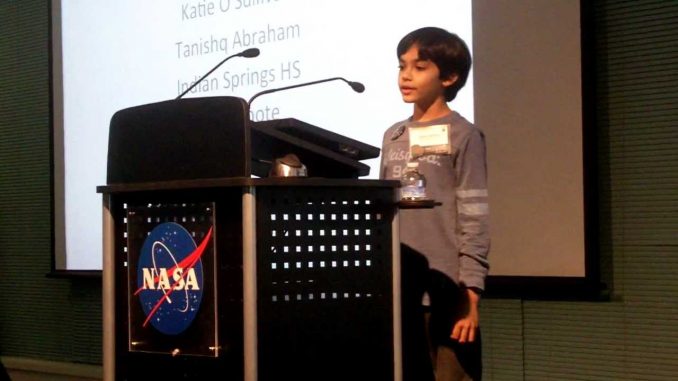Researchers at NASA guarantee that people are conceived with a characteristic flare for innovativeness and natural insight which in the long run escapes once they enter the instruction framework.

At TEDxTuscon, Dr. George Land educated his group of onlookers concerning an imagination test he produced for NASA researchers, that enabled them to gauge the inventive capability of school youngsters.
Ideapod.com reports: The researchers gave the test to 1,600 kids between the ages of 4 and 5. What they discovered stunned them.
This is a test that takes a gander at the capacity to concoct new, extraordinary and creative plans to issues. What level of those kids do you think fell in the virtuoso class of creative energy?
An entire 98 percent!
It gets all the more intriguing
In any case, this isn't the genuine story. The researchers were astonished to the point that they chose to make it a longitudinal report and tried the kids again five years after the fact when they were ten years of age.
The outcome? Just 30 percent of the youngsters now fell in the virtuoso class of creative energy.
At the point when the children were tried at 15 years the figure had dropped to 12 percent!
Shouldn't something be said about us grown-ups? What number of us are still in contact with our innovative virtuoso following quite a while of tutoring?
Unfortunately, just 2 percent.
Furthermore, for the individuals who question the consistency of these outcomes — or figure they might be disengaged frequencies — these outcomes have really been duplicated more than a million times, reports Gavin Nascimento whose article initially alarmed me to this astounding examination and its stunning ramifications: that the educational system, our instruction, denies us of our imaginative virtuoso.
"The thinking for this isn't excessively troublesome, making it impossible to catch; school, as we clearly call it, is an establishment that has truly been set up to at last serve the needs of the decision class, not the everyday citizens.
"All together for the alleged first class to keep up their rich ways of life of plain extravagance — where they contribute the minimum however appreciate the most — they comprehend that kids must be impaired and indoctrinated to acknowledge (and even serve) their ravenous arrangement of manufactured shortage, unending misuse, and relentless war," composes Nascimento.
What now? Would we be able to recover our imagination?
Land says we can be at 98 percent on the off chance that we need to. From what they found from the examinations with youngsters and from how brains function, there are two sorts of reasoning that happen in the cerebrum. Both utilize diverse parts of the cerebrum and it's an entirely unexpected sort of worldview in the feeling of how it frames something in our psyches.
One is called dissimilar — that is creative energy, utilized for producing new conceivable outcomes. The other is called merged — that is the point at which you're making a judgment, you're settling on a choice, you're trying something, you're censuring, you're assessing.
So unique reasoning works like a quickening agent and united reasoning puts a brake on our earnest attempts.
"We found that the end result for these youngsters, as we instruct them, we show them to do the two sorts of reasoning at the
same time", says Land.
When somebody requests that you think of new thoughts, as you concoct them what you for the most part learn at school is to quickly look and see: "We attempted that previously", "That is stupid thought", "It won't work" et cetera.
This is the point and this is the thing that we should quit doing:
"When we really peered inside the mind we find that neurons are battling each other and really lessening the energy of the cerebrum since we're always judging, censuring and blue penciling," says Land.
"On the off chance that we work under dread we utilize a littler piece of the cerebrum, however when we utilize imaginative reasoning the mind just lights up."
What's the arrangement?
We have to locate that five-year old once more. That ability that we as a five-year-old had, never leaves.
"That is something you practice each day when you're imagining," Land reminds us.
How would you approach finding that five-year-old?
Land provokes all of us: Tomorrow, you take a table fork, turn your five-year-old on and concoct 25 or 30 thoughts on the most proficient method to enhance the table fork.
Nice one
Downvoting a post can decrease pending rewards and make it less visible. Common reasons:
Submit
I have just written a comment with this conclusion on another post.
Schools are here to make us to obey and follow, in this proces creatyvitty is most damaged.
Downvoting a post can decrease pending rewards and make it less visible. Common reasons:
Submit